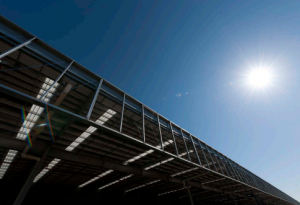 Purpose of the project:
Purpose of the project:
During 2013, the Goodman Group and the Goodman Australia Industrial Fund (GAIF), jointly undertook a holistic climate change risk assessment in partnership with independent consultants Edge Environment. Edge have been working closely with the Insurance Council of Australia on a similar project for the residential sector. The purpose of the assessment, which is a first for the industrial sector, was to identify opportunities where Goodman cold mitigate increasing volatile and intense weather related risks across our property development and property management activities.
Approach:
The process focused on two sample Goodman assets located in Australia, including a common (stabilized) industrial asset and an undeveloped land bank asset. The assessment included a review of historical maintenance records, repairs, incidents and insurance claims relating to weather events, as well as a review of existing climate data, weather records and major events and current flooding maps. Forecast weather models were reviewed to provide a future weather context. For the stabilized asset, as built drawings, design and structures were also assessed for resilience and maintenance records. For the land bank asset, fire zone maps were also assessed, as some of our assets have had issues with local bush fire smoke and smoke alarms.
Results:
The outcomes of the assessment related to various aspects of Goodman’s operations. Several opportunities for our development specifications were identified, with the main opportunities relating to storm water and flash flooding as a result of intense rain events. Also, strategies to manage increasing temperatures in warehouses apart from mechanical ventilation and air conditioning such as increased insulation, reflective roof membranes and increased shading will become more viable. In terms of stabilized assets, early warning notification and communication prior to a major weather events to mitigate impacts was also identified as an opportunity to explore.
“Understanding the potential impacts of the climate on our buildings enables us to better plan for and manage weather related incidents and operating challenges, and influence the design and resilience of Goodman’s new developments.” – James Vesper, Group Head of Sustainability


